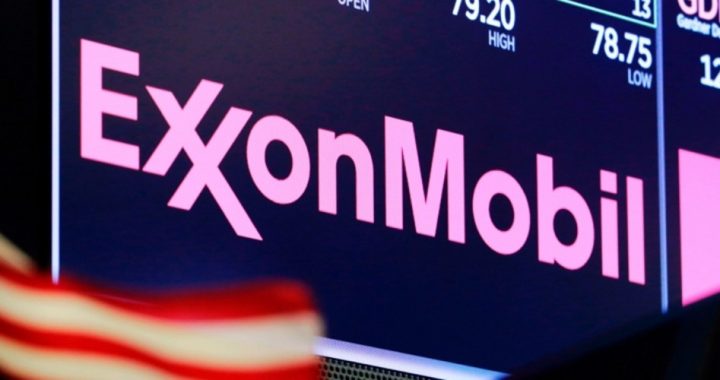
Podcast: Play in new window | Download ()
Subscribe: Android | RSS | More
On Tuesday, the State of New York’s war against the fossil-fuel industry continues as People of the State of New York v. Exxon Mobil Corporation moves through the New York State Supreme Court.
The case was originally brought forward by former New York Attorney General Eric Schneiderman, who is now another victim of the #MeToo Movement. Not to worry, though, because new Attorney General Letitia James remains on the case.
Schneiderman’s initial claim was that “Big Oil” was “overstating” its assets by “trillions” of dollars owing to the assertion that they knew all about potential future regulations and penalties that they might incur because of their knowledge of the effects of greenhouse gases on the environment.
You may have heard the meme from climate hysterics, and of course, the media. It goes something like this: “Exxon Mobil knew for decades about the dangers of climate change and hid it from the public.” This made the oil company the biggest villain in all of human history, narrowly beating out Josef Stalin and Chairman Mao for the top spot.
Beginning in 2016, the lawsuits began to come. No less than 20 states and municipalities began to sue the energy giant and other energy companies based on claims that climate-change concerns were hidden from the public. A Securities and Exchange Commission (SEC) investigation was opened by the Obama administration to get to the bottom of Exxon’s dastardly secrets.
But last summer, a funny thing happened on the way to climate justice for all. Judges began to dismiss the lawsuits. Some judges, such as William Alsup of the U.S. District Court in Northern California, ruled that the claims brought forth by plaintiffs were simply beyond his purview.
“This order accepts the science behind global warming,” Allsup wrote. “So do both sides. The dangers raised in the complaints are very real. But these dangers are worldwide. Their causes are worldwide. The benefits of fossil fuel are worldwide. The problem deserves a solution on a more vast scale than can be supplied by a district judge or jury.”
Other judges, along with the SEC, found that the evidence of claims that Exxon Mobil hid important climate-change knowledge from investors and the public at large was just not there. After poring through 4.2 million pages of documents, the SEC decidedagainst any punitive actions against the energy giant. In fact, the SEC found that Exxon Mobil had indeed stated the potential risks of greenhouse gases.
Of those twenty-some cases of government entities vs. Big Oil, only two remain active: the New York case and a case in Massachusetts, which is now on life support.
And the New York case has now morphed into something far less than it was. As the Wall Street Journalpoints out, the State of New York’s case has devolved into a query about Exxon Mobil’s accounting practices, instead of the accusation that they “knew” and “hid” key information about climate change from the public.
Exxon has denied wrongdoing, claiming that it was impossible to know the potential costs of future government regulations. You know — because they’re in the future.
The State of New York’s complaint now claims that the oil giant defrauded its investors — not the world in general — of somewhere between $476 million and $1.6 billion by misrepresenting the cost of future climate regulations. Question: Doesn’t the wide range in those figures — over 1.1 billion dollars — tell you that the State of New York can also not tell the future about what potential regulations might cost?
So, Exxon is accused of keeping two separate sets of calculations about something it couldn’t possibly be expected to accurately predict; namely the costs of future government regulations and possible penalites involved with climate change. They released one estimate to investors and allegedly kept another estimate — perhaps a worst-case-scenario — internally.
According to the complaint: “Exxon in effect created a Potemkin Village to created the illusion that it had fully considered the risks of future climate-change regulation.”
Among those expected to testify are former Secretary of State Rex Tillerson, who was Exxon’s chief executive from 2006 until 2016.
Even in its downgraded form, the case is being closely watched by energy companies and climate hysterics. A verdict for the state could influence federal lawsuits filed by Exxon shareholders in Texas and New Jersey alleging that they were misled by the company. It could also lead to future investigations of Exxon and other energy companies.
“It could open up a big can of worms,” said Jennifer Rowlan, a financial analyst for Edward Jones. “Other companies could be looked at and questioned about what assumptions they have made.”
A win for Exxon could serve as a buffer to companies that might face similar claims from government entities looking to recoup costs related to climate change.
But sometimes, lawsuits aren’t really about winning. In the case of these climate lawsuits, plaintiffs would definitely crow about a win — if one ever occurs — but they can also revel in a loss, provided their so-called science is confirmed in court. Consider the case in the U.S. District Court of Northern California referenced earlier. In that case, Judge Alsup wrote, “This order accepts the science behind global warming.”
That type of official recognition of questionable science is often just as important as a victory to climate hysterics.
Photo: AP Images
James Murphy is a freelance journalist who writes on a variety of subjects with a primary focus on the ongoing anthropogenic climate change hoax and cultural issues. He can be reached at [email protected].




